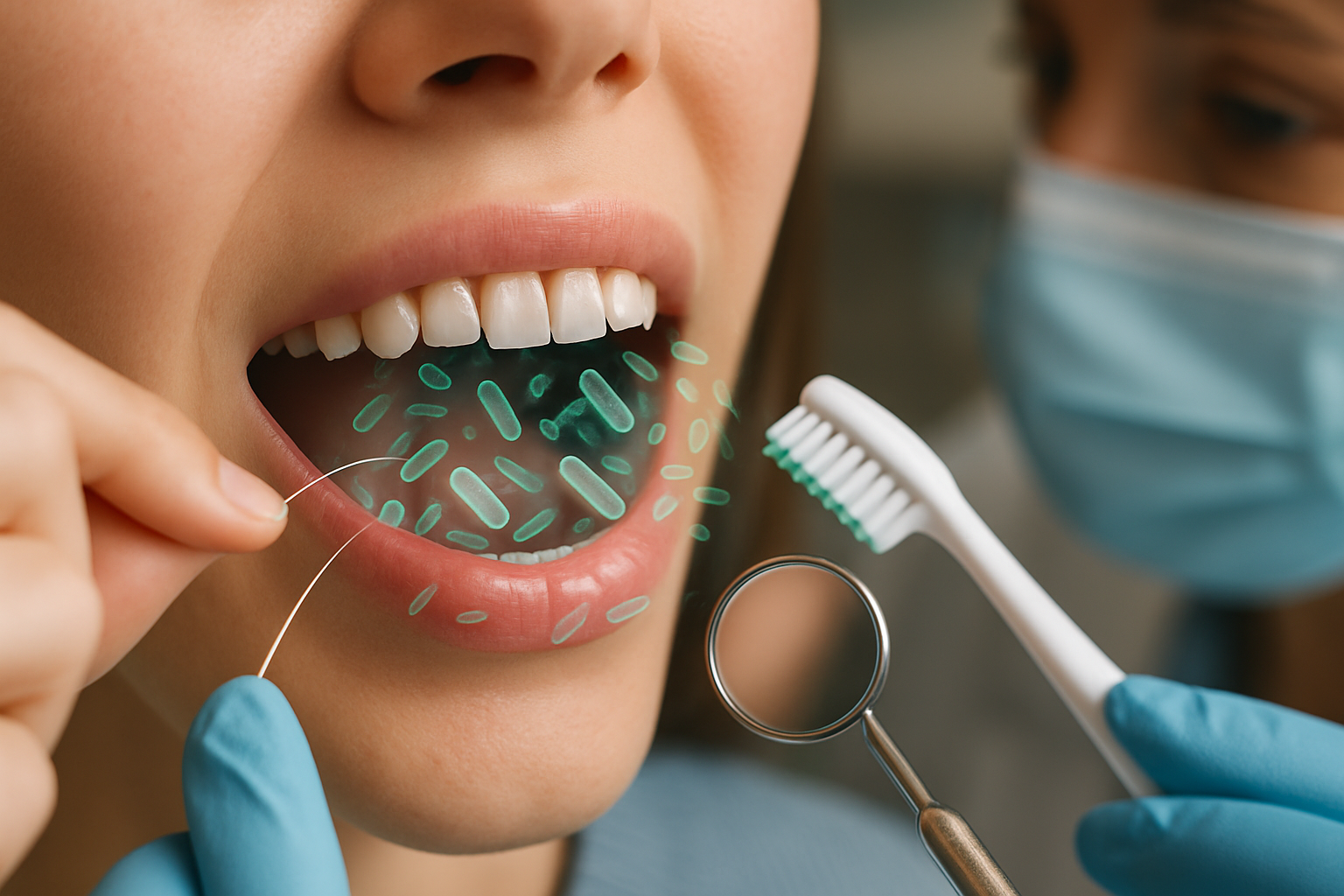Discover Proven Bad Breath Remedies to Achieve Freshness and Confidence in Social Situations
Bad breath, or halitosis, can significantly impact your confidence in social situations. Discovering effective bad breath remedies is key to maintaining fresh breath and improving oral hygiene. Various treatments, including mouthwash, natural breath fresheners like parsley or mint, and consistent oral hygiene practices, can help combat this common issue. Staying hydrated also plays a crucial role in preventing dry mouth, which exacerbates bad breath.

Bad breath is more than just an occasional inconvenience. For many individuals, it represents a persistent challenge that affects their personal and professional relationships. While temporary bad breath after eating certain foods is normal, chronic halitosis requires a more comprehensive approach. The good news is that various proven remedies exist to address this common concern, ranging from simple lifestyle adjustments to targeted treatments that tackle the root causes of unpleasant breath.
What Are the Most Effective Bad Breath Treatment Options?
Bad breath treatment begins with identifying the underlying cause. Most cases stem from bacterial buildup in the mouth, particularly on the tongue and between teeth. Regular brushing and flossing form the foundation of any treatment plan, but they may not be sufficient for everyone. Tongue scraping has emerged as a highly effective method, as the tongue harbors bacteria that produce sulfur compounds responsible for odor. Using a tongue scraper daily can significantly reduce bacterial load. Additionally, staying hydrated helps maintain saliva flow, which naturally cleanses the mouth and neutralizes acids. For those with dental issues such as gum disease or cavities, professional dental treatment is essential, as these conditions create environments where odor-causing bacteria thrive.
How Does Mouthwash for Bad Breath Work?
Mouthwash for bad breath serves multiple purposes in oral hygiene routines. Antibacterial mouthwashes containing ingredients like chlorhexidine, cetylpyridinium chloride, or essential oils can reduce bacterial populations in the mouth. These products work by disrupting bacterial cell walls and inhibiting their growth. However, not all mouthwashes are created equal. Alcohol-based formulations may provide temporary freshness but can dry out the mouth, potentially worsening bad breath over time. Alcohol-free options with antibacterial properties offer a gentler alternative that maintains moisture while fighting bacteria. For optimal results, use mouthwash after brushing and flossing, allowing it to reach areas your toothbrush might miss. Some therapeutic mouthwashes require prescription and are specifically formulated for chronic conditions, so consulting with a dental professional can help determine the most appropriate option for your needs.
What Approaches Help with Chronic Bad Breath Treatment?
Chronic bad breath treatment requires a more systematic approach than occasional halitosis. If bad breath persists despite good oral hygiene, it may indicate underlying health conditions such as dry mouth, sinus infections, acid reflux, or metabolic disorders. A comprehensive evaluation by a dentist or physician is the first step in chronic bad breath treatment. Dental professionals can identify issues like periodontal disease, which affects the gums and bone supporting teeth, creating pockets where bacteria accumulate. Treatment may involve deep cleaning procedures such as scaling and root planing. For systemic causes, addressing the underlying condition is crucial. Managing acid reflux through dietary changes and medication can eliminate breath odor originating from the digestive system. Similarly, treating sinus infections or adjusting medications that cause dry mouth can resolve halitosis. Probiotics have also shown promise in chronic bad breath treatment by promoting beneficial bacteria that compete with odor-causing microorganisms.
What Is the Best Way to Get Rid of Bad Breath?
The best way to get rid of bad breath involves a multi-faceted approach tailored to individual circumstances. Start with impeccable oral hygiene: brush teeth at least twice daily for two minutes, floss once daily, and clean your tongue regularly. Replace your toothbrush every three to four months or sooner if bristles become frayed. Diet plays a significant role as well. Avoiding foods with strong odors like garlic and onions, while increasing water intake, can make a noticeable difference. Chewing sugar-free gum stimulates saliva production, which naturally cleanses the mouth. Green tea contains polyphenols that reduce bacterial growth and neutralize odor compounds. Regular dental checkups every six months allow professionals to catch and treat issues before they become serious. For immediate freshness, natural remedies like chewing fresh parsley, mint leaves, or fennel seeds can temporarily mask odor while providing antibacterial benefits.
How Do Lifestyle Changes Support Fresh Breath?
Beyond oral hygiene products and professional treatments, lifestyle modifications significantly contribute to maintaining fresh breath. Smoking and tobacco use are major contributors to bad breath and should be avoided. These habits dry out the mouth, leave residue on teeth and gums, and increase the risk of gum disease. Reducing coffee and alcohol consumption also helps, as both can contribute to dry mouth. Eating a balanced diet rich in fruits and vegetables promotes overall oral health. Crunchy foods like apples and carrots act as natural tooth cleaners, stimulating saliva production and removing food particles. Managing stress is another often-overlooked factor, as stress can reduce saliva flow and alter eating habits, both of which affect breath quality. Ensuring adequate sleep and maintaining overall health through regular exercise supports the body’s natural defense mechanisms, including those that keep the mouth healthy.
When Should You Seek Professional Help?
While home remedies and over-the-counter products work for many people, certain situations warrant professional intervention. If bad breath persists despite consistent oral hygiene efforts, schedule an appointment with your dentist. They can perform a thorough examination to identify dental problems that may be causing the issue. Warning signs that require prompt attention include bleeding gums, loose teeth, persistent dry mouth, or a white coating on the tongue that doesn’t improve with cleaning. If your dentist rules out oral causes, they may refer you to a physician to investigate systemic conditions. Some medications cause dry mouth as a side effect, and your doctor may be able to adjust prescriptions or recommend saliva substitutes. Remember that chronic bad breath is rarely just a cosmetic concern; it often signals an underlying issue that deserves proper diagnosis and treatment.
This article is for informational purposes only and should not be considered medical advice. Please consult a qualified healthcare professional for personalized guidance and treatment.
Maintaining fresh breath requires commitment to oral hygiene, awareness of dietary impacts, and willingness to seek professional help when needed. By combining proven remedies with lifestyle adjustments and regular dental care, you can effectively manage bad breath and approach social situations with renewed confidence. The key is consistency and addressing the root causes rather than simply masking symptoms with temporary solutions.




